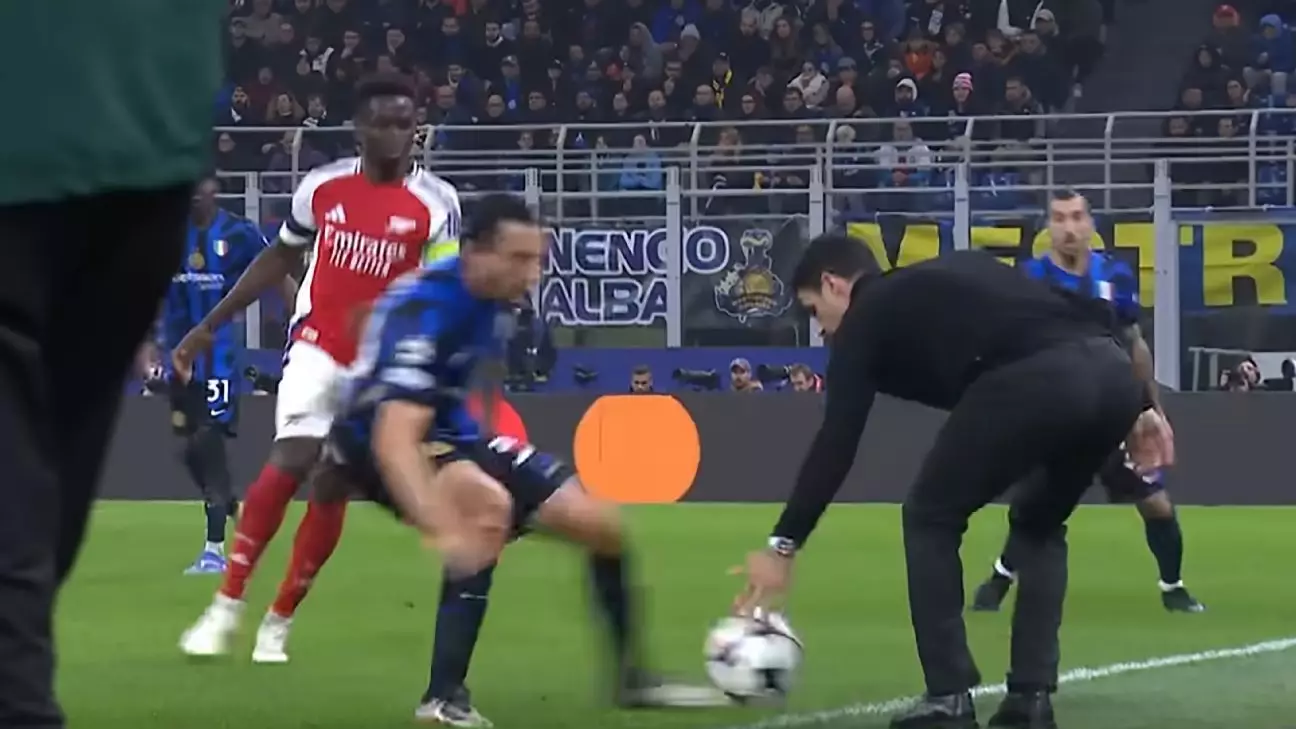The International Football Association Board (IFAB) plays a crucial role in governing the laws of football, ensuring that the game remains fair and enjoyable for all stakeholders. Recently, controversy has arisen from a specific incident involving Arsenal’s manager Mikel Arteta during a Champions League match against Inter Milan. This event has prompted a reevaluation of coaching conduct during live play, particularly when coaches inadvertently interfere with the game’s progress.
During the match, Arteta committed an infraction by picking up the ball before it had fully crossed the touchline. This action occurred when Inter defender Matteo Darmian was attempting to retrieve a ball that was going out for a throw-in. Although referee Istvan Kovacs showed Arteta a yellow card for his actions, the consensus among pundits and fans was that this punishment was inappropriate, given that the laws clearly dictated a red card for such interference. This incident highlighted a potential inconsistency in enforcing rules that govern coach conduct.
The core of the issue lies in the balance that must be struck between a coach’s involvement in a game and maintaining the integrity of play. Coaches are crucial cogs in their teams’ operations, but their actions can also disrupt the flow of the game and diminish the experience for players and spectators alike. Previous incidents this year, including those involving West Bromwich Albion’s Carlos Corberán and Kilmarnock’s Derek McInnes, have spotlighted the lack of uniformity in how such infringements are managed.
The IFAB’s recommendations to amend the laws around coach interference emerge as a proactive measure to encourage fair play. The organization argues that in cases where the coach’s sole motivation is to expedite the game’s restart—like in Arteta’s situation—a caution may be more appropriate than a grave sanction. This proposal recognizes the intent behind a coach’s actions and aims to foster a spirit of cooperation rather than excessively punitive measures which could detract from the game.
Scheduled for consideration during the IFAB’s Annual General Meeting on March 1, these changes signify a pivotal moment in how the game is regulated. Should the proposed amendments receive approval, they would be set to take effect by the summer of next year. Beyond the legislation concerning coaching behavior, another key proposal addresses the protocol surrounding dropped balls.
Currently, the rules stipulate that if a referee interferes with play while a team is in possession, that team automatically receives a dropped ball. However, the new proposal suggests that if the pass is clearly not intended for the receiving team and is an errant throw, the dropped ball should favor the opposing side. This change aims to rectify situations where teams might gain undue advantages and ensures a fairer resolution to interruptions in play.
These amendments by the IFAB illustrate a critical evolution in the governance of football, attempting to adapt the rules to the realities of modern play. By re-evaluating how a coach’s actions are perceived and penalized, and refining the dropped ball protocol, the IFAB seeks to enhance the clarity and fairness of the game. As the football community prepares for these changes, the hope is that such adjustments will not only improve adherence to the laws of the game but also promote a collaborative spirit among coaches, players, and officials alike.

